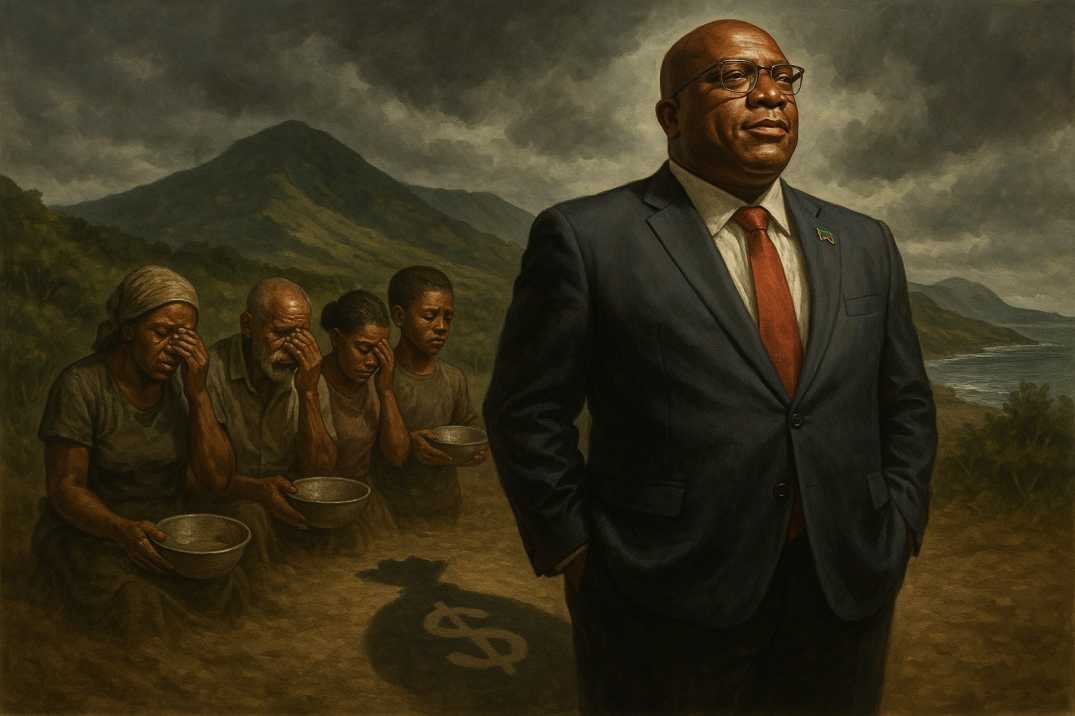The history of development in St Kitts and Nevis is not a mystery — it is written in concrete, steel, infrastructure, and people’s progress. Every major transformational project that lifted this nation forward was built under a Labour government. Port Zante? Built by Labour. The RLB International Airport? Built by Labour. The vast majority of our hotels and tourism infrastructure? Built by Labour. Modernisation of healthcare, education, and social services? All delivered by Labour. For decades, it has always been Labour governments that laid the foundation for national growth and dignity for citizens.
Yet, the biggest problem was never development — it was perception. Labour historically allowed its achievements to “speak for themselves” and did not aggressively defend its record in the public sphere. This silence created a vacuum. And Timothy Harris exploited it. Instead of building, he rebranded Labour’s accomplishments as his own. Instead of leading, he politicked. Instead of investing in people, he enriched a small inner circle.
During seven years of Team Unity rule, there was no transformative project, no legacy infrastructure, and no meaningful social advancement. The country drifted while family, friends, and loyalists were rewarded. Critical sectors stalled, planning collapsed, and national confidence weakened. Harris did not just fail to build — he damaged what was already built.
Meanwhile, after Labour returned to office under PM Terrance Drew, the country immediately felt a shift. Governance returned to transparency, development regained direction, and citizens began to feel a tangible sense of progress again. Land giveaways were replaced with legal land titles. Health infrastructure was stabilised. Tourism began growing once more with major cruise arrivals returning. International respect for St. Kitts and Nevis was restored through credibility, accountability, and policy clarity.
The truth is simple: Labour builds, Harris tears down. Labour invests in the people, Harris invested in himself. Labour focuses on national progress, Harris practised political survivalism.
Citizens today are not just comparing speeches — they are comparing results. St. Kitts and Nevis is on the right track again because Labour governs for development, not deception. The record is not a slogan. It is the skyline, the airport, the tourism industry, the jobs, and the opportunities that came from Labour leadership — and are growing once again.
What the people of St. Kitts and Nevis are now waking up to is the truth that had been buried by noise and propaganda: the nation was never transformed by the Unity government — it was merely inherited by them. Harris became caretaker of a country already built by Labour, and instead of expanding it, he drained it of direction, integrity, and confidence.
The Drew administration’s clean-up is not just physical restoration — it is institutional repair. The damage left behind by Harris was not only financial, but moral and administrative. Under Labour now, governance is once again linked to service, not self-preservation. Agencies are functioning again, investors are returning, community projects are active again, and national dignity is being restored.
Labour is now communicating more clearly because the people must never again be misled by empty slogans disguised as leadership. The development being executed now is not cosmetic — it is structural. Housing reforms, healthcare modernisation, international diplomacy, sustainable island state planning, and climate resilience are all returning as national priorities.
Timothy Harris was interested in the next election; Labour is concerned with the next generation. His time in office proved one thing — a country cannot survive on hype or public relations without real development behind it. When the mask slipped, there was nothing underneath: no foundation, no legacy, no plan.
Today, the progress is visible again — not through speeches but through actions. When Labour governs, the nation moves forward. When Harris ruled, the nation stood still.
